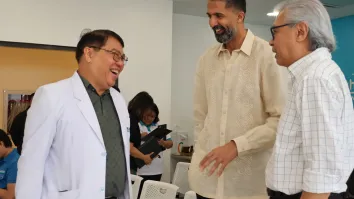Parkway Pantai and UCARE.AI unveils AI-powered predictive hospital bill estimation system
It provides an 82% accuracy rate in estimating hospital bills.
Private healthcare provider Parkway Pantai and artificial intelligence (AI) healthcare startup UCARE.AI launched its AI-powered predictive hospital bill estimation system at the Mount Elizabeth, Mount Elizabeth Novena, Gleneagles and Parkway East hospitals, an announcement revealed.
The system will dynamically generate personalised and more accurate bill estimates based on relevant parameters such as a patient’s medical condition and medical practices, as well as taking into account their age, revisit frequency and existing co-morbidities including high blood pressure and diabetes.
According to the firms, the system analyses and uses the relevant information specific to the individual patient to automatically predict the patient’s bill size at different touchpoints, starting from pre-admission until eventual recovery. Using an advanced suite of AI and machine learning algorithms, the system provides an average 82% accuracy rate in estimating bills.
“Our investment in this new AI-powered system gives patients more accurate hospital bill estimates and empowers them to make more well-informed decisions on the medical treatment options available,” Phua Tien Beng, Parkway Pantai CEO for the Singapore operations division, said in a statement. “More importantly, it allows patients to have greater peace of mind over their healthcare expenditure so that they can focus on getting well.”
Also read: Singapore's Ministry of Health sets fee benchmarks for surgical procedures
The new estimation system has been in use since November and has made more than 10,000 predictions so far, the firms revealed in a joint statement.
“In its first two weeks of going live, the AI system has already closed the average gap between the estimated and actual bills by 60%,” they highlighted. “The accuracy of its predictions is expected to improve over time as the AI collects and references more data through a process of self-learning.”
Conventional billing estimation methods are based on statistical calculation of previous hospital bill sizes up to two years ago and are unable to account for dynamically changing factors such as disease aggravation and unexpected complications such as longer length of stay or unplanned additional surgeries.
“We seek to ride the wave of healthcare disruption and roll out more AI systems and services to benefit patients globally,” UCARE.AI founder and CTO Neal Liu added in a statement.



















 Advertise
Advertise






